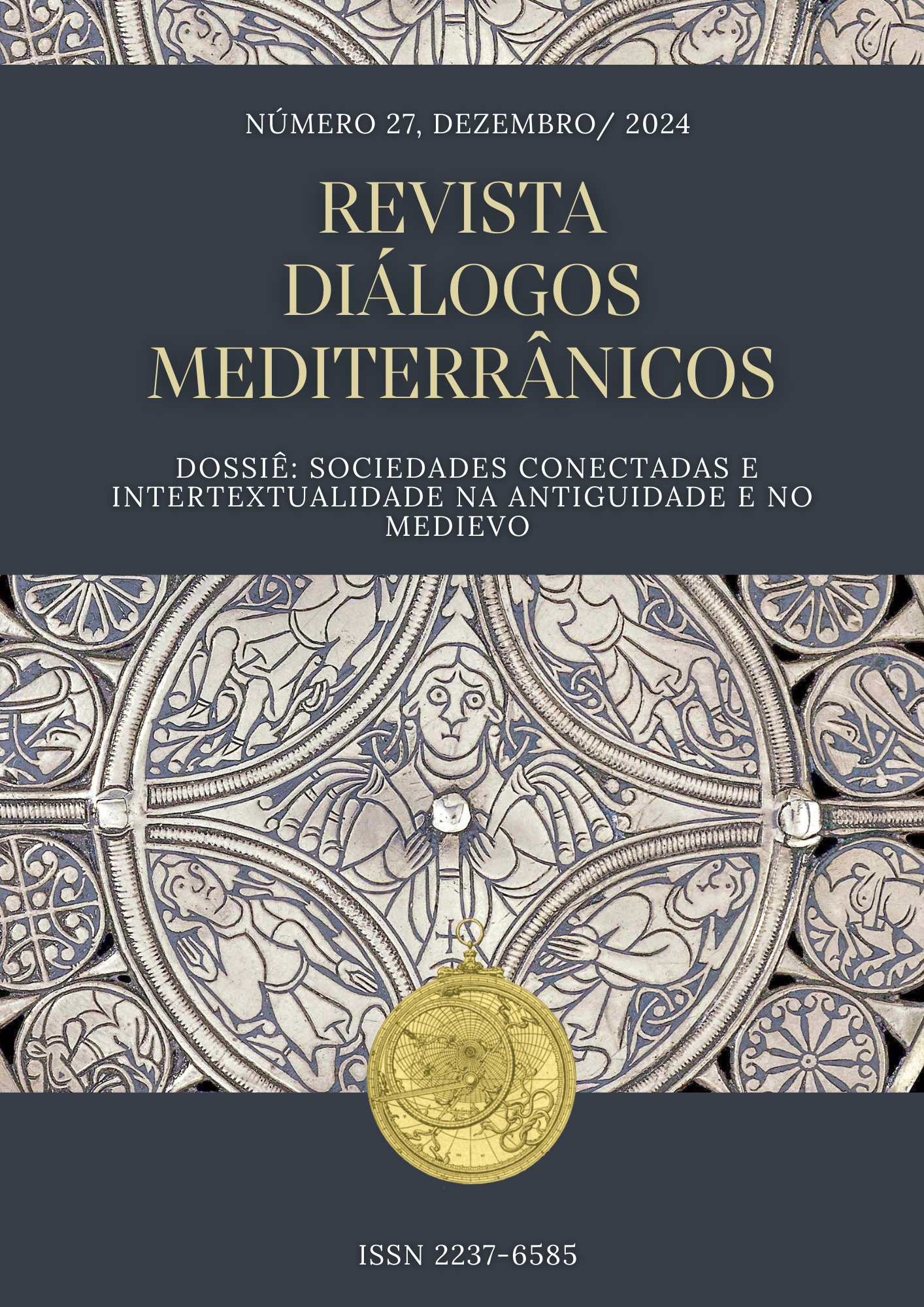Fenômenos climáticos endógenos nas intertextualidades das crônicas do Atlântico Norte (séculos VII – XII)
Résumé
As crônicas do Atlântico Norte documentaram fenômenos climáticos como ciclones, inundações, chuvas e secas, refletindo a preocupação dos cronistas medievais com a interação entre comunidades e o meio ambiente. Investigamos essas descrições sob a ótica da intertextualidade em perspectiva conectada. Exploramos os padrões textuais entre seis crônicas: Crônica da Irlanda (c. 740 – 911), Anais de Gales (c. 447 – 955), Crônica Anglo-Saxônica (c. 890 – 1154), Anais Reais Francos (c. 741 – 829), Anais de St. Bertin (c. 830 – 882) e Anais do Ulster (c. 911 – 1489). Utilizamos a Oscilação do Atlântico Norte (NAO) como modelo para identificar variabilidades climáticas. Nossa análise revela períodos de fenômenos climáticos extremos perceptíveis nas crônicas, sugerindo fases positivas e negativas da NAO entre os séculos VIII e XII. Concluímos que é possível adaptar o modelo moderno da NAO para os registros dos cronistas medievais com vistas a desafiar a noção tradicional de um “período medieval quente” entre c. 900 e 1300 anterior à uma “pequena idade do gelo” entre c. 1300 e 1800.
Téléchargements
Publié-e
Comment citer
Numéro
Rubrique
Licence
Proposta de Política para Periódicos de Acesso Livre
Autores que publicam nesta revista concordam com os seguintes termos:
- Autores mantém os direitos autorais e concedem à revista o direito de primeira publicação, com o trabalho simultaneamente licenciado sob a Licença Creative Commons Attribution que permite o compartilhamento do trabalho com reconhecimento da autoria e publicação inicial nesta revista.
- Autores têm autorização para assumir contratos adicionais separadamente, para distribuição não-exclusiva da versão do trabalho publicada nesta revista (ex.: publicar em repositório institucional ou como capítulo de livro), com reconhecimento de autoria e publicação inicial nesta revista.
- Autores têm permissão e são estimulados a publicar e distribuir seu trabalho online (ex.: em repositórios institucionais ou na sua página pessoal) a qualquer ponto antes ou durante o processo editorial, já que isso pode gerar alterações produtivas, bem como aumentar o impacto e a citação do trabalho publicado.






